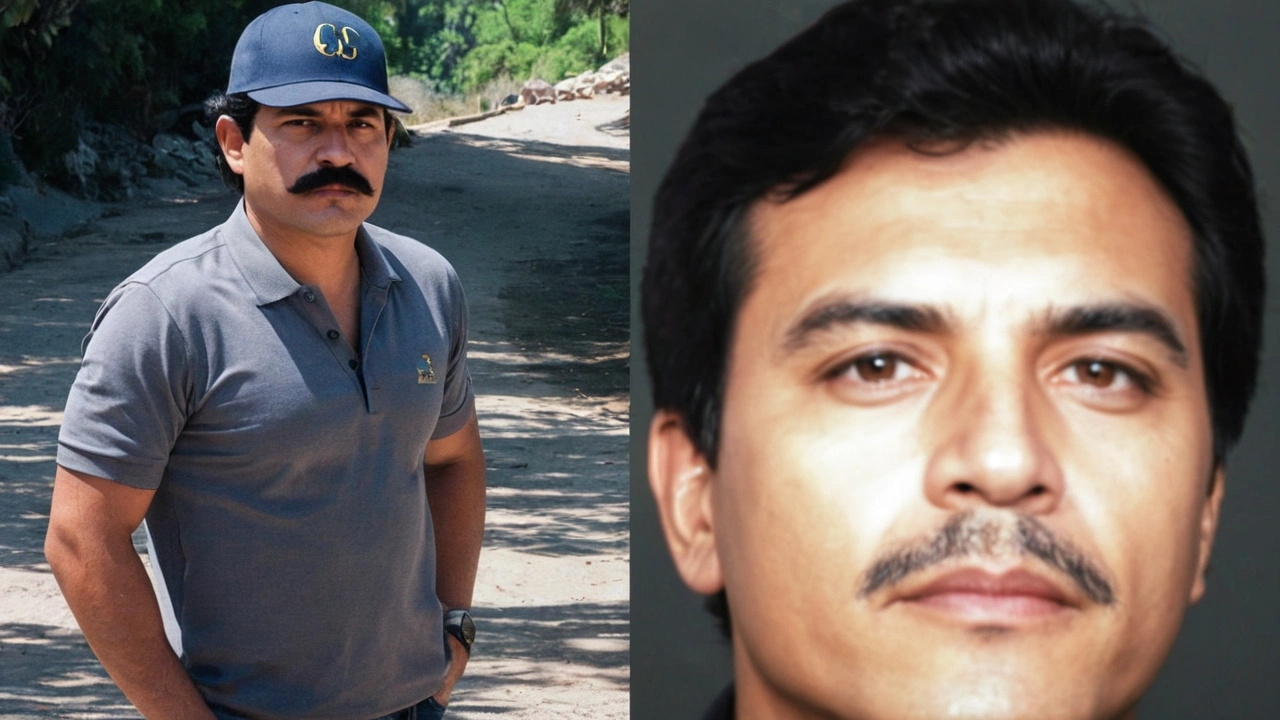Alleged Kidnapping and Arrest of 'El Mayo'
Ismael 'El Mayo' Zambada, a pivotal figure in the world of organized crime and co-founder of the Sinaloa cartel, has long been a thorn in the side of international law enforcement agencies. The saga took a dramatic turn recently when Zambada was allegedly kidnapped by Joaquín Guzmán López, the son of infamous drug lord Joaquín 'El Chapo' Guzmán. Zambada’s lawyer, Frank Perez, made the stunning revelation that Guzmán López, accompanied by several men in military uniforms, ambushed and forcibly took Zambada into custody, leading to his eventual arrest by US authorities.
A Deceptive Plot Unfolds
According to Perez, the daunting operation was cloaked under the guise of a legitimate business meeting. Zambada, who believed he was headed to northern Mexico to inspect some real estate, was allegedly deceived into boarding a plane that instead landed him in the US. This unexpected twist culminated at a small airport near El Paso, Texas, where US authorities were waiting to apprehend him.
Legal Proceedings and Charges
Zambada has since pleaded not guilty to a slew of charges, including drug trafficking and money laundering, in a federal court in El Paso. The list of accusations highlights the gravity of his alleged involvement in one of the world's most notorious drug trafficking organizations. His capture marks a significant milestone, considering the $15 million bounty that had been placed on his head by the United States. Despite numerous attempts, Zambada had successfully evaded capture for decades.
Presidential Reaction and Implications
President Joe Biden lauded the arrest, underscoring its importance in the fight against organized crime. He emphasized that such a breakthrough would significantly contribute to saving American lives by reducing the reach and impact of deadly narcotics streamed by the cartel into the country. Biden's remarks reflect the high stakes and extensive efforts put into apprehending figures like Zambada, who are at the helm of international drug trafficking operations.
The Guzmán-Zambada Relationship
The arrest also brings to light the complex relationship between the Guzmán and Zambada families. Throughout their histories, the families have experienced intertwined destinies within the high-stakes world of drug trafficking. Notably, Zambada's son, Vicente Zambada Niebla, had previously testified against 'El Chapo' and is believed to be in witness protection. This intricate web of family ties and betrayals only adds layers of intrigue to the recent incident.
Operation Questions and Mexican Authorities' Role
One of the key concerns arising from Zambada's arrest is the extent of the involvement of US agencies in orchestrating the alleged kidnapping and the subsequent flight. Interestingly, Mexican authorities were notably absent from the operation, which raises questions about the coordination, or lack thereof, between the two nations regarding the high-profile capture. Perez's allegations of deceit and ambush further complicate the narrative, suggesting that the US may have utilized unconventional methods to achieve their goal.
Impact on Organized Crime
Zambada's capture signifies a substantial blow to the Sinaloa cartel—a formidable entity that has dominated the drug trafficking scene for years. The arrest disrupts the operational dynamics of the cartel and possibly weakens their influence. However, history has shown that such organizations often have resilient structures capable of withstanding the loss of key figures. Whether this arrest will disrupt the cartel's operations or provoke a violent power struggle remains to be seen.
Public and Political Reaction
The public reaction to Zambada's arrest has been one of cautious optimism. On one hand, there is a sense of relief that a significant figure in organized crime has been apprehended. On the other hand, there are concerns about potential retaliatory violence and the broader implications for US-Mexico relations. Politicians and citizens alike are calling for clarity on the specifics of the operation and demanding transparency in the judicial proceedings that follow.
The Road Ahead
As Zambada faces the US judicial system, the story is far from over. The legal battles, potential testimonies, and the broader impact on the Sinaloa cartel will continue to unfold in the coming months. This incident not only highlights the lengths to which law enforcement agencies will go to capture high-profile criminals but also underscores the intricate and often dangerous game of power and deception that defines the world of organized crime.


Alyson Gray
OMG the whole saga feels like a twisted telenovela, I can barely keep up with the drama. It's heartbreaking to think about the lives tangled up in this power game, especially when families betray each other. Still, I kinda feel sorry for Zambada’s kids, they’re caught in a mess they never chose.